Dogue de Bordeaux vs Cane Corso: Is There a Difference?
There definitely is a balance of similarities and differences between the Dogue de Bordeaux and the Cane Corso. Both of them belong in the Mastiff family, so as you would expect, their adult sizes are no joke. Although they have the same roots, both dogs possess varying personality traits and, of course, the most obvious of all would be their appearance.
These large dogs are wonderful family companions and even though they are distinct from one another, both remain to be excellent guard dogs with dependable qualities. Learn more about their uniqueness through this article!
Table of Contents
Breed Origins
Dogue de Bordeaux
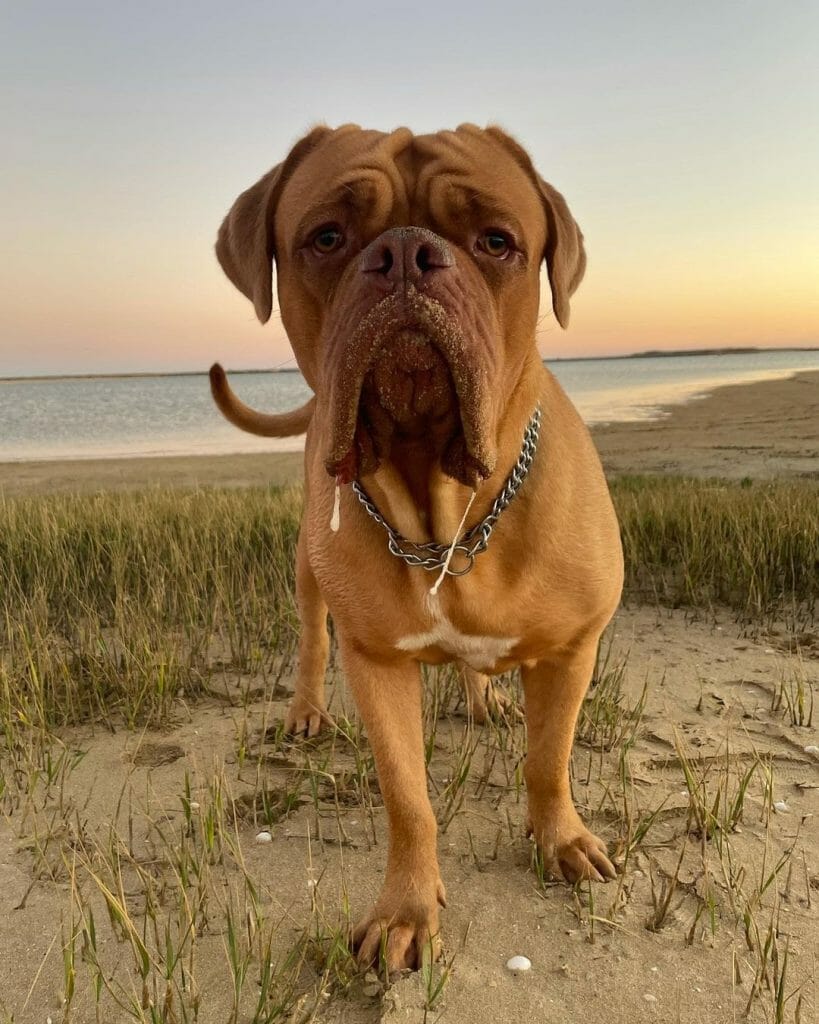

The Dogue de Bordeaux is a pride of France. He’s one of the oldest breeds there is and he is considered to be a Molosser due to his gigantic size. The Dogue, along with the other Mastiff dogs, Saint Bernards, and Pugs, descended from one ancient ancestor known as the Molossus.
We might already know his primary root, but the Dogue’s lineage remains to be clear as mud. There are many claims that say he is a descendant of the Tibetan Mastiff, the Alano, or that he’s an ancient French breed that was once known as the Dogues of Aquitaine. Other sources also suggest that the Dogue came earlier than the Bullmastiff and Bulldogs and that these two breeds helped back in developing the Dogue de Bordeaux.
Jumping to the 1800s, this French breed became a working dog. He is mainly known as a protector today and a significant contributor to the Dogo Argentino’s genealogy.
Cane Corso
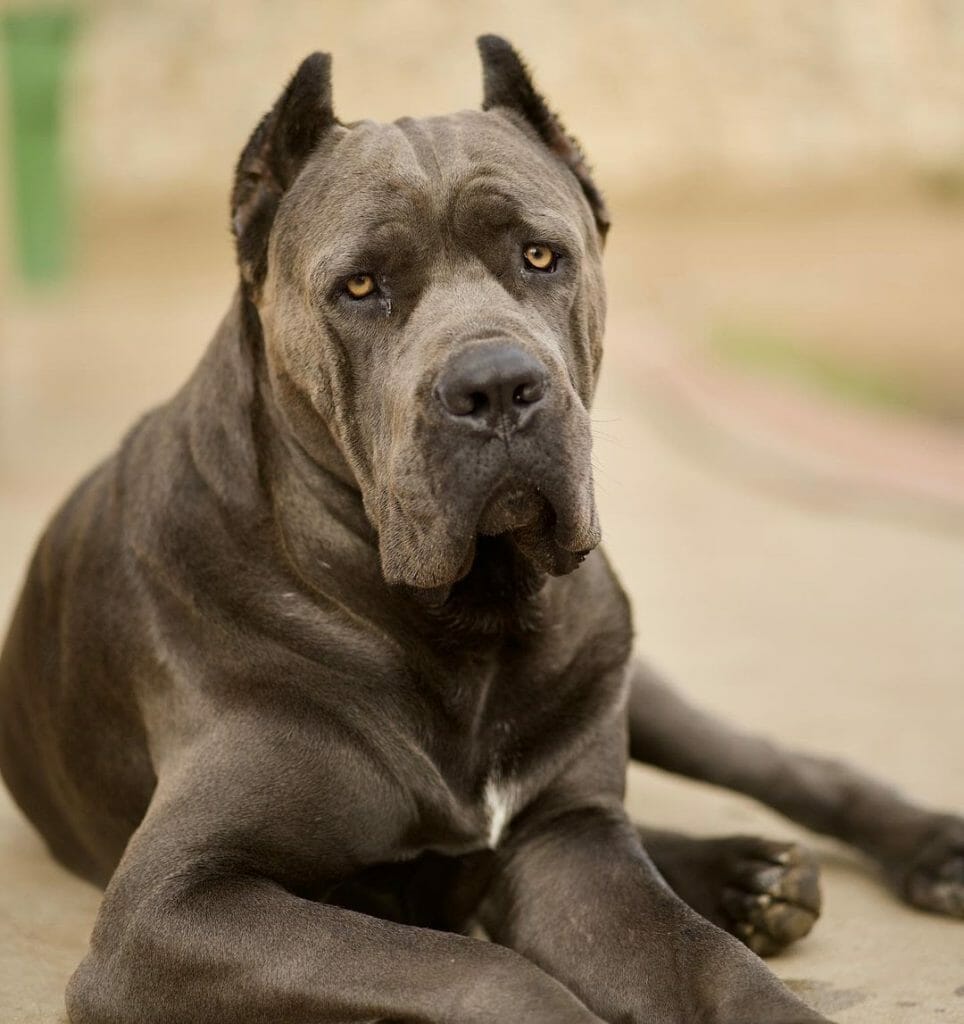

Coming from Italy, the Cane Corso is believed to have come from the line of the Great Roman war dogs. Unfortunately, when the Roman Empire fell, the canine transitioned into an excellent farmhand, hunting dog, or guardian. Despite his competence in most fields, his numbers drastically declined at the time industrialization started, especially when two world wars occurred. Dr. Paolo Breber gave special attention to the Italian Mastiff breed in 1973 and started a breeding program that would revive the almost-vanished canine. The effort proved to be fruitful when the Federation Cynologique Internationale recognized him in 1996. The American Kennel Club then followed and acknowledged the Cane Corso as an official breed last 2010.
Size, Appearance, & Coloring
Dogue de Bordeaux
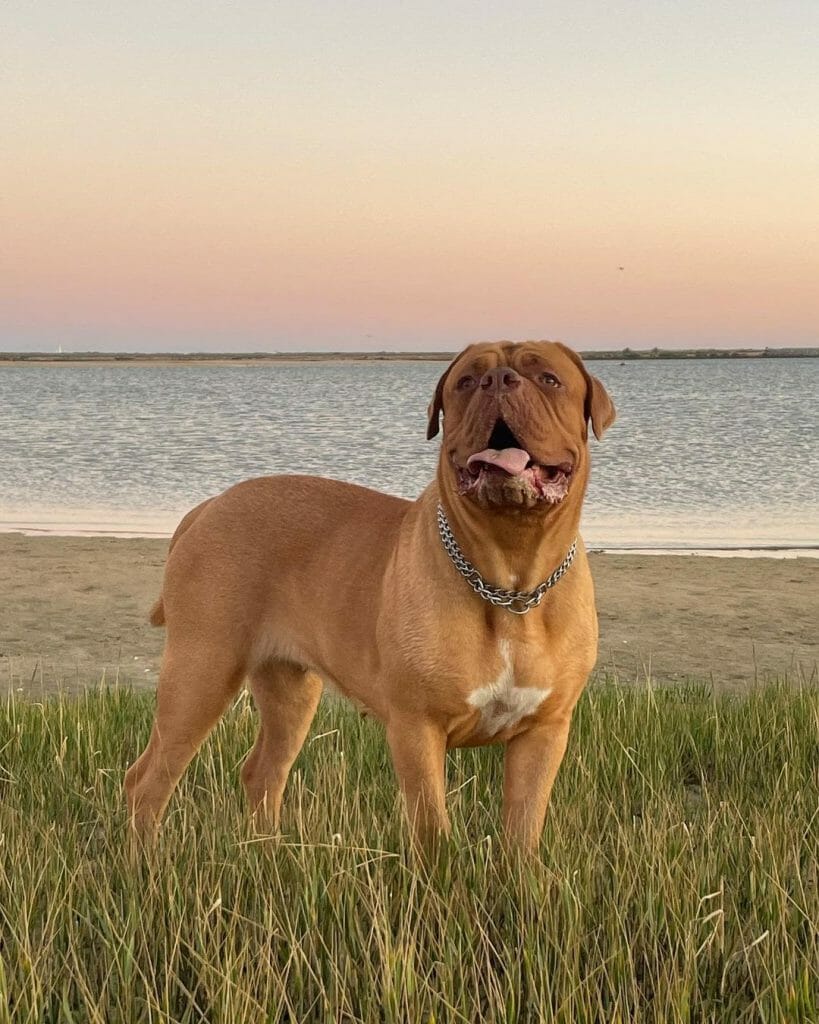

The first thing you’d notice from a Dogue is his similarity to several other brachycephalic breeds. Other than that, his size is also a prominent feature. Dogues can reach over 99 to 110 pounds in weight which is complementary to their ideal height that reaches around 23 to 27 inches.
This impressive canine has a robust build with a large head and thick neck. His muzzle is short, but the jaws are undeniably strong when described. A few wrinkles can be seen in his forehead and jowls hang a bit loosely. What comes as a surprise is his extremely soft, short coat. Before, the Dogue has a variety of natural coat colors, but these days, the French dog sports only three and they are:
- Red
- Fawn
- Mahogany
Cane Corso
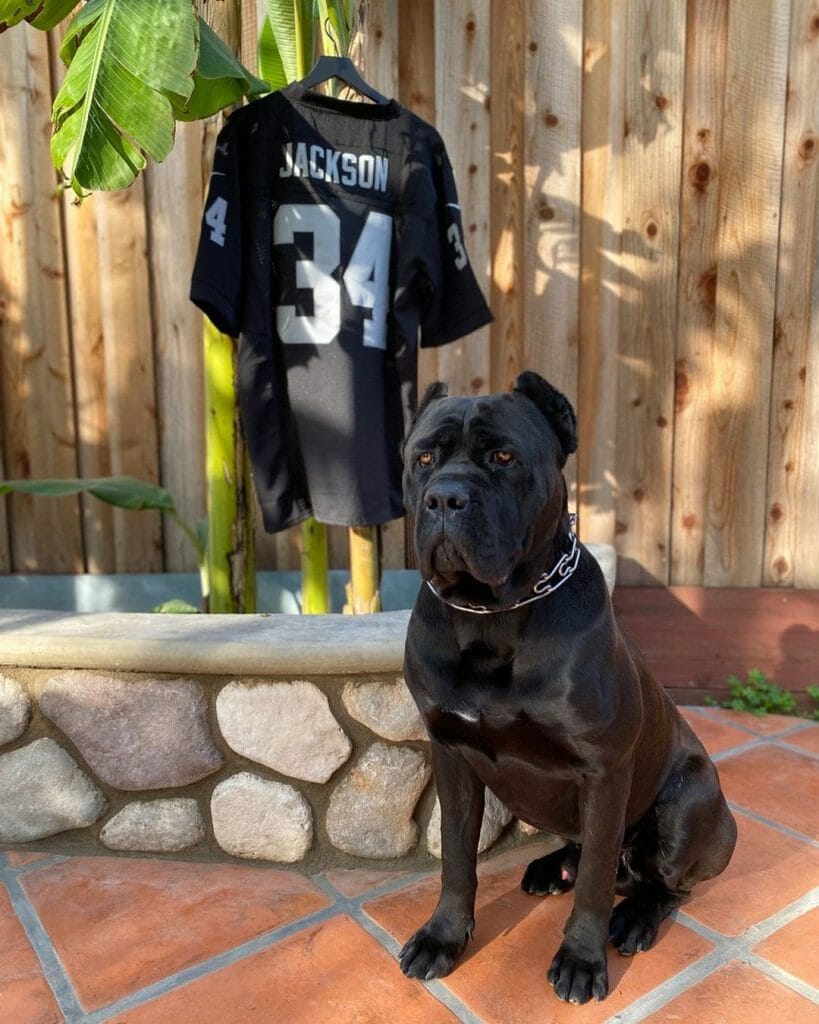

Powerful, large, and menacing. Those are the three words that perfectly describe the Cane Corso. He has piercing and glaring eyes that exhibit keenness to whatever type of surrounding he’s in. Sometimes, owners choose to crop his ears or dock his tail to add up to his already fearsome look. Overall, his image is elegant and his muscles are impressively evident, especially on the chest.
There are multiple colors available for this breed and they include:
- Black
- Gray
- Fawn
- Red
Black is the usual color you’ll see from the Cane Corso. In terms of his size, obviously, he’s medium to large with his height that ranges from 23.5 to 27.5 inches and a proportionate weight that can reach over 110 pounds.
Temperament
Dogue de Bordeaux
First impressions-wise, the Dogue de Bordeaux won’t look like the friendliest dog you’ll ever meet. He has this imposing look and oftentimes, a strong display of personality. Nonetheless, a well-socialized Dogue can become the gentlest and loving companion to anyone. Compared to most guard dog breeds, the Dogue de Bordeaux resorts to less aggression, but his alertness and dedication to secure everyone’s safety remain to be at its peak.
In a family setting, the Dogue de Bordeaux loves to be involved in various bonding activities. However, considering how massive he is, his interaction with toddlers must be supervised. He’s not at all overly clumsy, but it’s better not to compromise your children’s safety.
Cane Corso
As a unique breed, the Cane Corso possesses a special set of traits. He is confident, intelligent, and protective. It won’t be that hard for him to assess the situation should he be placed as a guard dog. If there’s anything he doesn’t like, it would be trespassers or burglars. A well-trained Cane Corso, however, doesn’t just attack right away. He must be taught how to identify normal from bad behaviors.
Typically, his dominance can be a challenge. A Corso parent should establish right away that he’s the pack leader or else, the dog will take charge. With kids, the Cane Corso generally gets along very well with them as well as with other dogs yet monitoring remains an integral part of the interaction.
Exercise Needs
Dogue de Bordeaux
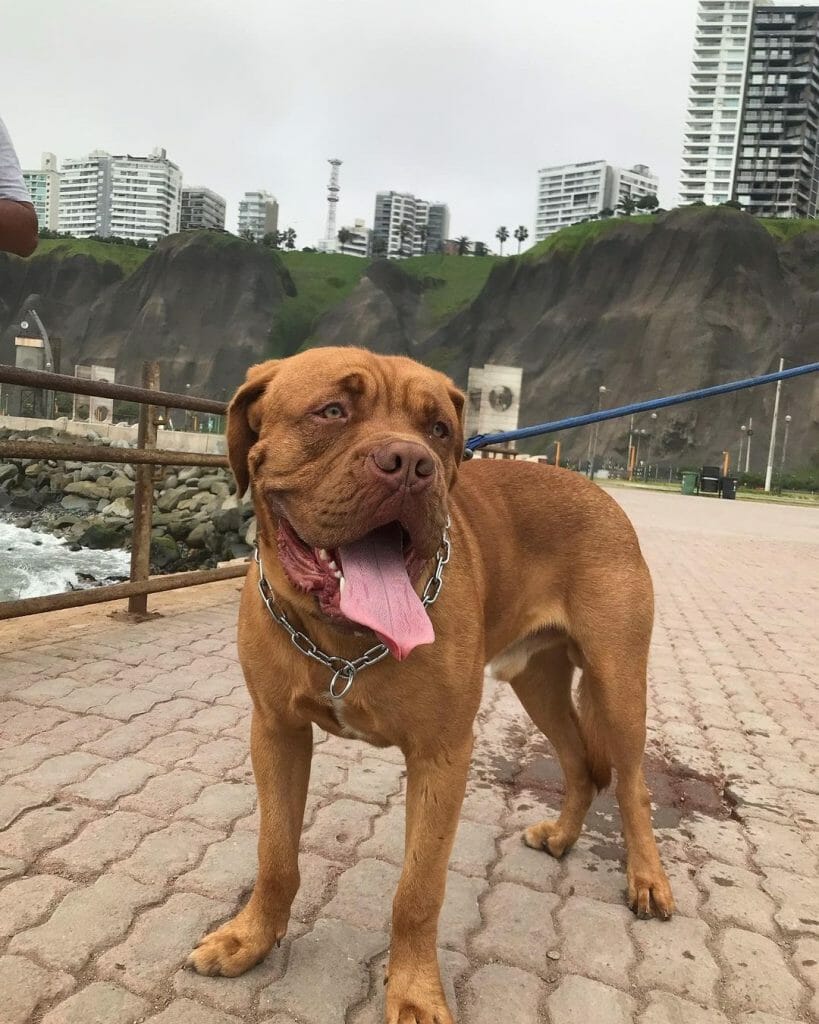

Dogue de Bordeauxs cannot regulate their body temperature well if they are under the sun. They overheat quickly, so minimize his daily romps in the yard. He has moderate levels of energy, therefore, his drills must also not be too exhausting.
The suggested length of time to spend in his daily sweating is 1-hour minimum. You can accompany your Dogue for a walk early in the morning for 30 minutes and then give him the remaining length of time to explore his surroundings in the afternoon.
Cane Corso
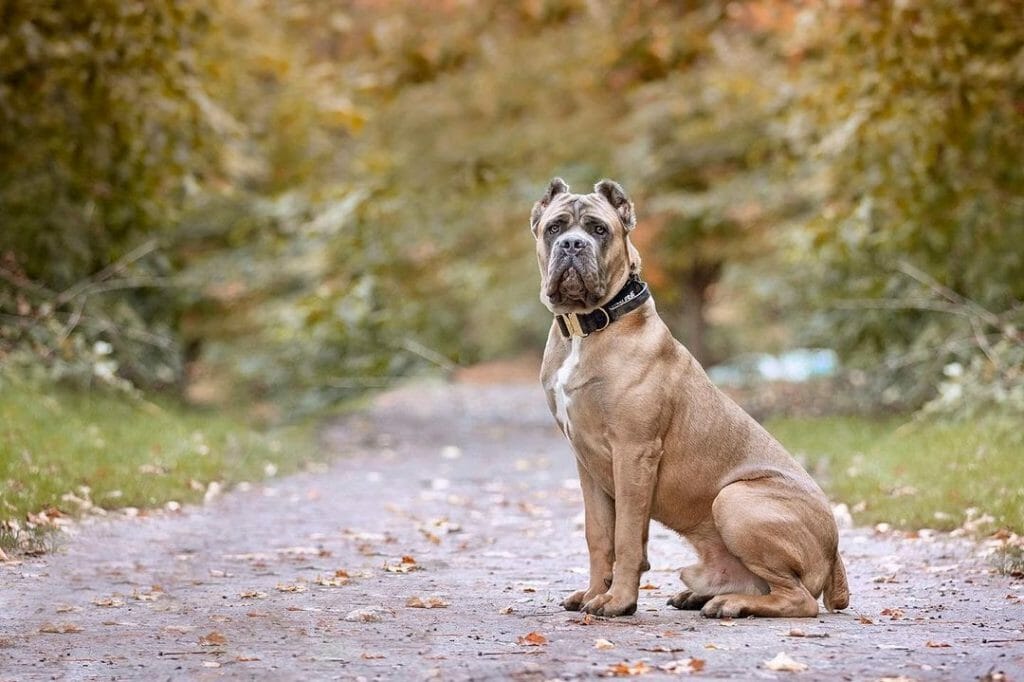

As a large dog, the Cane Corso won’t be able to move too energetically compared to a smaller pooch. He needs a few activities that would require moderate energy levels. His drills must be executed daily to keep him in a healthy shape. Access to a garden or yard that has a fence around it is ideal, but he can also adjust to an apartment-style of living as long as he gets to go out frequently.
Also, unlike most other dog breeds, the Cane Corso can live outdoors provided he has a safe shelter that can protect him from the harsh weather.
Grooming Requirements
Dogue de Bordeaux
The short coat of the Dogue de Bordeaux is manageable as it only requires to be brushed regularly using a curry comb. Soft bristle brushes work well too as they help minimize his shedding. You can run the brush every couple of days or once weekly depending on what works best for you.
Don’t forget to wash him every 6 to 8 weeks. A dirty dog on the couch wouldn’t be a pleasant sight to see. Hypoallergenic or mild dog products must be used to avoid irritating his delicate skin or causing a break on his strands.
Cane Corso
Surprisingly, the Cane Corso is a light-shedding breed! He sheds so little that he won’t need to be brushed daily. Of course, bristle brushes should still be in his grooming kit. If he starts getting stinky or dirty, give him a good wash. If he usually likes to splash in the pool, regularly scheduled baths can be compromised a bit.
Make sure his nails are trimmed and his ears stay clean to keep him from infections. His teeth shouldn’t be ignored as well.
Health Problems
Dogue de Bordeaux
There are a few major health concerns for the Dogue de Bordeaux. Owners must always be prepared to address any of these should an illness strike or develop. Regular vet check-ups help lower the risk of diseases when they are diagnosed and treated early, so be cognizant of the common issues the breed may suffer from:
- Brachycephalic syndrome
- Heart disease
- Cancer
- Hip dysplasia
Cane Corso
No dog breed is 100% free from any health concerns. Thankfully, despite the Cane Corso’s vulnerability to health issues, early diagnosis, treatment, and follow-up check-ups can aid him in maintaining a healthy lifestyle. Still, be aware of what complications is common to him:
- Gastric torsion
- Hip dysplasia
- Entropion
- Ectropion
Breed Popularity
The American Kennel Club’s breed popularity ranking currently places both Mastiff breeds in their respective rankings:
Dogue de Bordeaux: 67th
Cane Corso: 32nd
Which Dog Is Right for You?
In making a decision, mainly base it on both the dog’s temperament and also the kind of lifestyle you have. Both the Cane Corso and the Dogue function as good guard dogs and devoted companions with the same energy levels. Spend a considerable amount of time with each prospective dog and see which one is closer to your heart!
